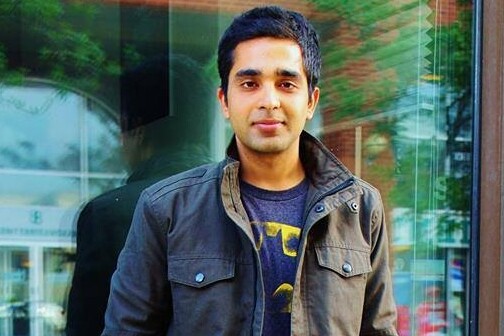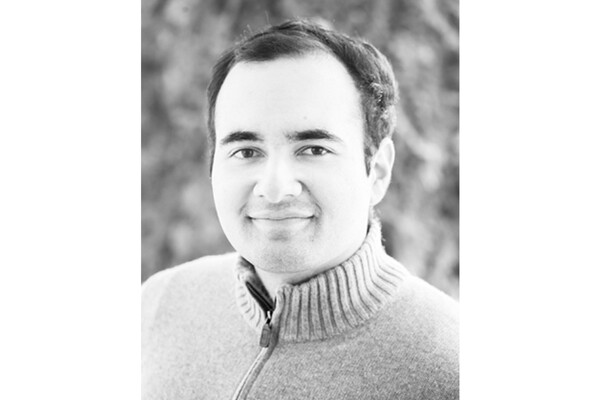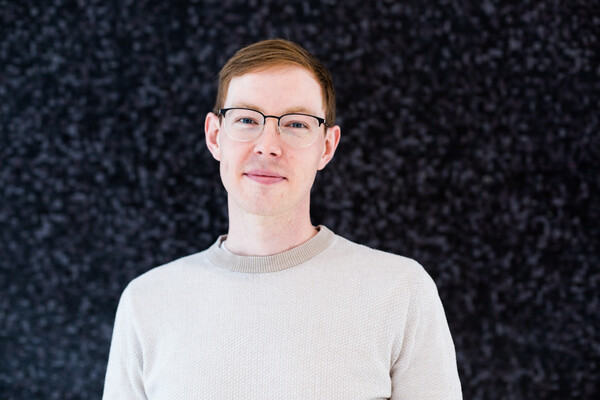Breadcrumbs
- Home
- MD/PhD Program
- News
- Faces of U of T Medicine: MD/PhD student Shrey Sindhwani
Faces of U of T Medicine: MD/PhD student Shrey Sindhwani

Tabitha Chan
 MD/PhD student Shrey Sindhwani is passionate about achieving a better understanding of how nanoparticles travel through the body and finding solutions to the barriers they face, in order to ultimately improve treatment of diseases such as cancer. Writer Tabitha Chan speaks with Sindhwani to learn more about what the process of research is like and his interest in bioengineering and cancer nanomedicine.
MD/PhD student Shrey Sindhwani is passionate about achieving a better understanding of how nanoparticles travel through the body and finding solutions to the barriers they face, in order to ultimately improve treatment of diseases such as cancer. Writer Tabitha Chan speaks with Sindhwani to learn more about what the process of research is like and his interest in bioengineering and cancer nanomedicine.
Year of study in PhD Program: Fourth year PhD Program (5th Year MD/PhD)
What is the focus of your PhD?
The first time I heard about nanotechnology was from my grade 11 Chemistry teacher in India. He told me that it was possible to buy ties that would repel stains and spills, due to the addition of nanoparticles in the fabric. That got me very fascinated about what exactly enabled that property. In medicine, nanotechnology offers a lot of excitement for detecting and treating diseases because it functions at a nano scale (1/10000th of the width of a strand of human hair) where proteins and cells perform their actions. What drew me to applying nanotechnology to medicine was the ability to design features of nanoparticles to carry out therapeutic actions. We can’t see these particles, but the dream is to be able to create nanostructures that can interact in a specific and intentional manner to perform the desired task at a precise location. The focus of my PhD at Dr. Warren Chan’s lab is essentially a prequel to this goal.
I am working towards revealing and visualizing the barriers that a nanoparticle faces on route to, as well as inside a tumour. Since tumours are variable in both space and time, we are trying to get a comprehensive picture of these barriers in 3D through turning the organs in mice transparent. This gives us an unbiased map of tumour barriers – akin to how Google Earth gives you the ability to zoom in to every street and neighborhood, as well as being able to zoom out to look at the whole planet from space.
If you are interested in learning more about this topic, you can visit:
What is one of the most valuable lessons you have learned during your time at U of T?
The most valuable lesson I have learnt at U of T is the strength of diversity. People from different academic, professional and cultural backgrounds have so much insight to offer, if you take the time to listen to them. It is a very humbling experience. My academic endeavors have been strengthened through being open to various perspectives and thinking styles, while also maintaining a constructive attitude. This mindset helps me to consider concepts in unique ways and to find unexpected and useful solutions.
How do you handle setbacks or obstacles when it comes to research?
Setbacks and obstacles are just like catching a cold during flu season. There will be a new strain every year, but your immune system eventually responds. Your ability to handle the re-challenge is faster and better, and being vaccinated also helps. In the research world, this means planning your project well and logging data even if experiments are not going the way you want them to. Perseverance and resilience allows you to understand why things are not working, which is a prerequisite to solving the problem. Sometimes I take a little bit of a break and do something else to take my mind off of the obstacle. It is amazing how overlooked pieces of information can become apparent when you return to the research with a fresh pair of eyes.
A second very important lesson that I have learned during my PhD is that setbacks in one context are undiscovered applications in a different context. Again, they reveal themselves in time once I have understood the cause of the failure. There is magic in that moment. Lastly and at the very least, through my failures, I am able to help someone else by guiding them to overcome similar obstacles and preventing them from waste time and resources.
What is the most rewarding aspect of research?
The most rewarding aspect of research for me is people. Research is a team sport today. I am very fortunate to have the opportunity to interact with such bright minds everyday that genuinely care about each other's projects and personal development. These relationships are priceless and are a big reason as to how I've reached where I am today. It would have been impossible for me to progress in my PhD without the right environment.
What do you hope to accomplish after graduation?
In addition to completing the residency program, I want to keep my focus on nanomedicine. I hope that after understanding and explaining barriers to nanoparticle delivery, I can focus on designing and testing solutions that overcome these barriers. This would be the next phase for the field. Secondly, I want to broaden my knowledge scope and assess the research gaps in areas such as immunology and neurosciences, where nanotechnology has not played a big role yet.
What's your passion?
I absolutely love my research. That must count as a passion for me! I am able to exercise my creativity in trying to figure out reasons behind why something behaves the way it does. That fundamental desire is very powerful. Besides that, I am a big soccer fan and loyal Arsenal supporter; watching their games is a passionate affair.
How do you maintain a healthy work/study life balance?
I have been trying to improve this balance in the last two years! I go to the gym a few times a week and play squash sometimes. I read The Economist on the way to work. I also enjoy reading books (currently loving The Gene by Siddhartha Mukherjee) and practicing guitar before going to bed. During the ride season, I also love taking day trips on my motorcycle up north.
News


